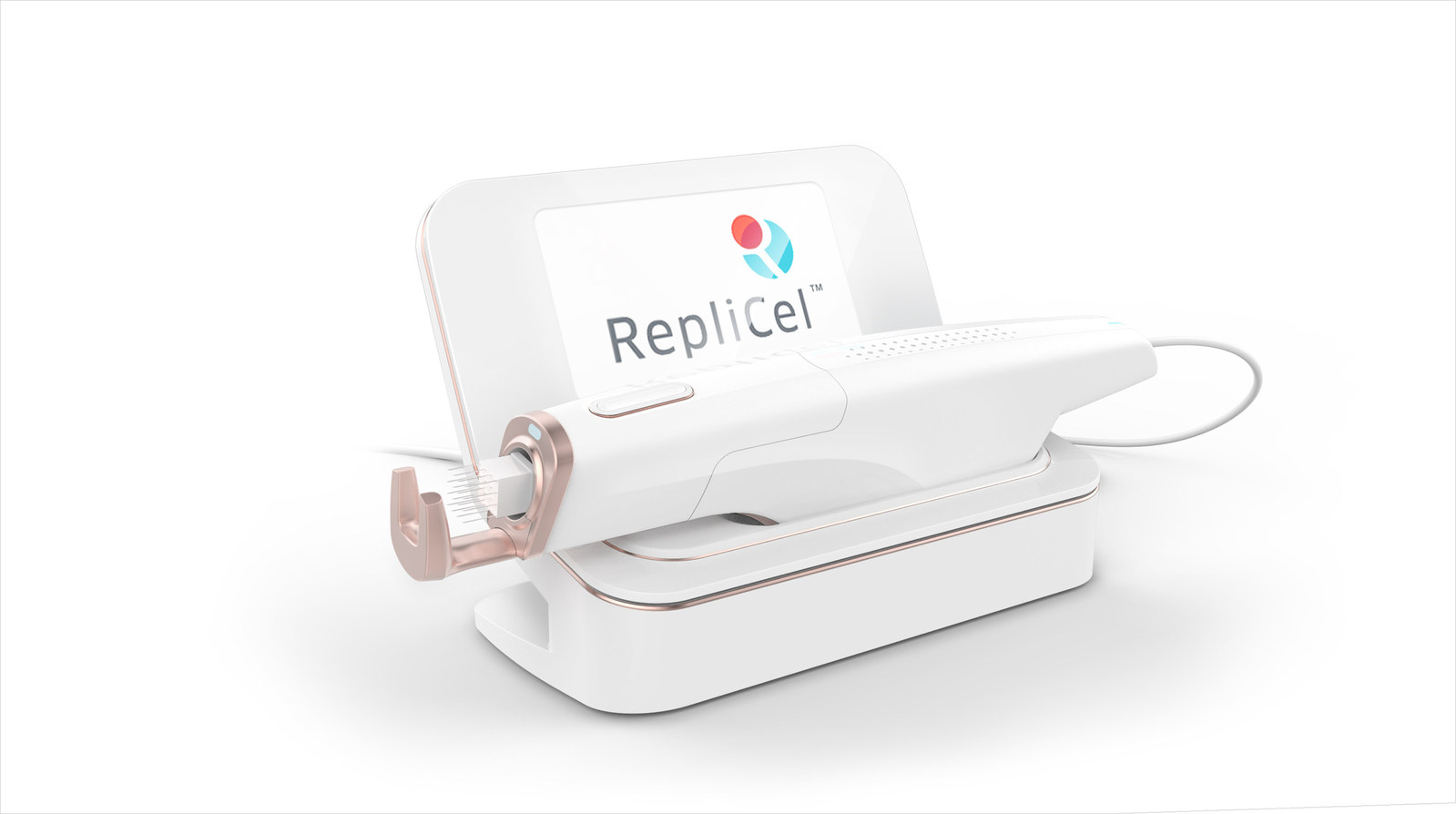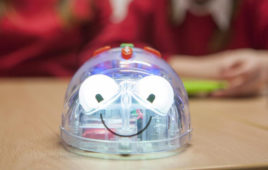
RCI-02 Patented Dermal Injection Device (Credit: CNW Group/RepliCel Life Sciences Inc.)
RepliCel Life Sciences Inc., a clinical stage regenerative medicine company developing cell therapies for aesthetic and orthopedic conditions, announced the granting of a key patent in the United States (U.S. Patent No. 9,616,182) covering significant components of the Company’s novel, multi-needle dermal injection device.
In the development of propriety cell therapy products targeting pattern baldness (androgenetic alopecia) and aging or sun-damaged skin, RepliCel’s dermatology team identified a need for next-generation dermal injection technologies capable of bringing new levels of precision and control to any substances injected into the skin.
The patent issued by the U.S. Patent and Trademark Office (USPTO) relates to technologies designed to enable both unparalleled control and repeatable consistency of needle action and product deposition. The patent also relates to the element designed to numb the skin prior to injection with the intended effect of reducing, if not eliminating, the need for local anesthetic prior to aesthetic injection procedures.
The first device being developed under this patent, RCI-02, is designed for injecting soft tissue fillers such as hyaluronic acid (“HA”). According to recent statistics released by the American Society for Plastic Surgery (April 2017), there were over 11 million minimally invasive cosmetic procedures performed nationally in 2016: over 80 percent were wrinkle treatments and hyaluronic acid filler injections, totalling an expenditure of over $3 billion. RCI-02 represents the nearest-term commercial opportunity for the Company, which it intends to have market-ready and in the hands of a co-development licensee and commercial partner next year (2018).
The device is also being developed for the injection of RepliCel’s RCH-01 hair restoration and RCS-01 skin rejuvenation products. Future iterations of the device will be optimized for other injectables such as drugs, biologics, vaccines, fat grafts, etc.
The U.S. patent adds to the Company’s intellectual property portfolio, which includes two European patents for RCI-02, both granted February 9, 2017. RepliCel’s first European patent for its injection technologies (Patent No. 2623146) was validated in a total of fourteen countries, including Austria, Belgium, Denmark, Finland, France, Germany, Ireland, Italy, the Netherlands, Norway, Spain, Switzerland, Sweden and the United Kingdom. The second European Patent (No. 2809381) is now being validated in a number of European countries and is expected to be complete in the near future.
“We are confident RepliCel’s extensive patent estate for its cell therapy and injection devices will provide our products with long-term market exclusivity,” says Lee R. Buckler, CEO of RepliCel. “The granting of this U.S. patent is an important addition to RepliCel’s formidable intellectual property portfolio, which we believe will further build value for our investors.”
“Exclusive U.S. rights to the world’s largest aesthetic medical device market represents a significant opportunity for the Company as it addresses an unmet need in the cosmetic dermal injection market,” says Dr. Rolf Hoffmann, RepliCel’s Chief Medical Officer, a practicing dermatologist and the primary inventor of the RCI-02 injector. “Single needle syringes available today do not have the ability to precisely deliver dermal fillers with predictable and consistent results,” he states.
Dr. Hoffmann continued by saying, “RepliCel’s RCI-02 injector has been designed to provide unprecedented reliability, reproducibility, and programmability of three-dimensional skin injections, enabling clinicians better control and consistency, while also providing less-experienced injection specialists with the confidence to undertake these procedures with desired outcomes.”
“The Company is on track to have prototypes ready in Q3 2017 for initial functional and usability testing by engineers, as well as, user-groups,” continues Mr. Buckler. “This year is about building and testing commercial-grade prototypes. Next year, our goal is to get RCI-02 CE-marked, licensed to a commercial partner and generating revenue.”


